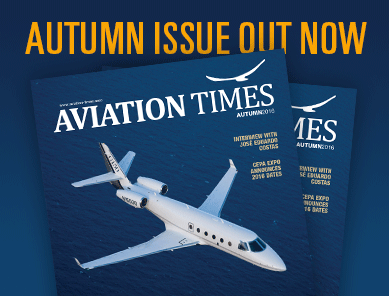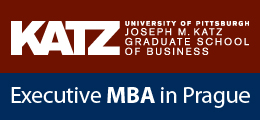Interview: Oliver Stone – Advice Worth Hundreds of Thousands of Dollars
Typically, a business card tells you the name of a person, it carries his formal title and his coordinates. What is hidden behind the letters of a name or title, are really the most important things: who is this person, what do they know and what can they offer to me. His name is Oliver Stone, his title is Managing Director of Colibri Aircraft. Oliver and I agreed to meet in London’s Royal Exchange for an interview. I knew that his professional activity was aircraft brokerage and asset advisory but I wanted to know about his values and the wealth of expertise he gained through the execution of more than sixty airplane transactions involving import/export of aircraft across registrations. Nothing better than a straight forward way of questioning to see what I can get out of him:
“Oliver, I want buy a jet. It will be my first one. I have no prior experience; in fact I don’t know anything about aircraft or flying. There is no limit as to what I can afford. But I’m usually a bit arrogant and wonder why should I ask you to be my reliable advisor? What will you essentially point out to me in our first meeting?
“With first time clients like you, we take extra care to ask about their personal preferences and their planned use. Do you need the aircraft to fly from London to the USA or mainly around Europe? Will you likely be flying your entire management board of 10 people or just your close family of 4? Aircraft are extremely personal – every person around them has their own subjective preferences, and as a first time buyer it can be very difficult to decipher all the information as you often hear many different opinions. One of the things that surprises first time owners is the actual expense of operating an aircraft. We don’t want our clients to have a bad experience with aviation as we want them to enjoy their aircraft for many years to come. We work very hard to set realistic expectations of what ownership is like and what the client wants to achieve by owning the aircraft.
This business is extremely detail oriented. Between the technical aspects of the aircraft and its condition, the operation, the tax structures and international ownership jurisdictions, it can be overwhelming to begin with. If there’s one piece of advice we would give anyone, first or tenth time buyer, it would be to ask questions. If something sounds confusing or technical, ask us to explain it.”
“So, what I hear you saying, Oliver, is that when I hire you and your company Colibri Aircraft to represent me, it means that I will have a trusted partner on my side to help avoid and understand the many risks involved with entering into a very detailed industry, correct?”
“Yes, we are your guide in an unregulated business and mistakes are virtually always measured in the thousands of dollars or higher. We approach each transaction as if we owned the aircraft ourselves and were spending our own money. For us, protecting clients like you while helping them realize what is the beginning of a truly exciting phase of their life is what we do.”
“Well, Oliver, I’ve got news for you. I am going to buy an aircraft for sure and I think that I’ve already found a good deal. The plane looks good, the price is okay, the background information that was provided to me seems fine, as far as I can judge. Yet, I have an instinctive feeling that doesn’t sit comfortable; I don’t know why. Should I contact you and what could you do for me?”
“Trusting your instincts is vital. If you feel something is off, then let’s figure out what that is. However, many times a feeling of uncertainty arises because this industry and all of the technical points around it are unfamiliar to our clients. We are often brought in to help evaluate situations like this in order to review the transaction and see what exposures may exist. If we see something questionable, we work with our clients to try to minimize those exposures in a way that reduces risk for the client.
“Okay, now let’s turn things around. I have a private jet but circumstances force me to sell it. I’m not desperate but the matter is urgent. The questions ‘how fast can you sell’ and ‘how much will I get’ will certainly come up in our first conversation. What do you say?”
“Situations like these have been common since September 2008. The key to this is a very blunt and honest advice about the financial parameters involved with arranging a sale in short notice. A fast sale requires two things: an attractive price and convenience. Without question, the desire for a quick sale will mean that the price will be much lower than could be achieved with a full marketing campaign. However, a low price doesn’t assure a sale. The structure still has to be straightforward to entice a buyer. Being able to structure the sale properly to maximize the chance of a successful closing is very important. Finally, expectations are absolutely vital in these situations – in such cases, there is a clear financial need for the money, and our job is to help fulfill that need.”
“Let’s add some spice to the question! I already found a buyer who seems to have the cash to close a deal. But I’m old and wise enough to know that what seems to be an easy deal may turn out differently. Could I have overlooked something? Should I still call you so close before signing the deal?”
“Often at the signature stage, it is difficult to make many changes as the counterparty may feel that you are re-negotiating the transaction. The sooner we are engaged in the transaction cycle the better it is, as it is much easier to make changes to a deal in the early stages. Our preference is to be brought in at the very beginning of the process stages, as that allows us to build the entire deal in a method that suits a client’s needs as opposed to trying to merely mold an already bargained transaction. That being said, it is always advisable to have people look at a deal before signing, even if it is at a late stage. The contract signature is where funds are typically put at risk and when the obligations are finalized, so double checking before signing is always advisable.”
“Without any doubt, market intelligence is an important element in your field of activities. Market dynamics are often influenced by unexpected events. Do you consider the various forecasts to be correct? Who has better judgment , a person like you who is right on the playing field amidst the players (buyers, sellers, financiers,etc.) or, the commentator/forecaster who has one eye on the ball field from a distance and the other eye on the performance statistics in the league? What should we keep in mind when reading the various forecasts?”
“This is a difficult question to answer as our business is highly dependent upon the overall global economic environment. Economic forecasters review a large amount of data to predict where the market is going and give a more macroeconomic view of the market. That being said, in the last 5 years, we have often disagreed with market forecaster’s predictions as what we are seeing in the actual trading business has been very different than what is predicted to occur. For example, manufacturers have been predicting, incorrectly, that each year in the last five years was going to be the bottom of the market and the turnaround was imminent. However, the market has continued to decline each year going directly against what is being predicted. When reading these forecasts, keep in mind who is writing them. In this example, the manufacturers are often very optimistic to encourage people to act in a similar manner. We find that some of the more impartial forecasts are from the large lenders, such as Credit Suisse, who have access to tremendous economic data and have provided fairly accurate predictions in recent years.”
“To stay with intelligence for a moment. Donald Rumsfield, a former US Secretary of Defense stated that: ‘There are known knowns. These are things we know that we know. There are known unknowns. That is to say, there are things that we know we don’t know. But there are also unknown unknowns. There are things we don’t know we don’t know.’ Oliver, related to your field of business, what is your viewpoint on these two unknowns?”
“That quote is very applicable to this business. I will pick some recent regulatory requirements as an example of how to relate this. For example, in March of next year, some avionics upgrades called FANS -1A and CDPLC will come into effect in North Atlantic and EU airspace. Most older aircraft do not have a solution to comply with this yet. It will not affect the airworthiness of the aircraft as there are ways to still fly without compliance, but it will impact the airspace use and routing, potentially making previously possible non-stop trips (e.g. London – New York) require a fuel stop. So far these upgrades have been very expensive. Most aircraft are not in compliance. The known unknown here is that we know this is an issue and must be solved, but we do not know how these extra costs will affect older aircraft demand and therefore resale values.
As far as unknown unknowns go, the big one is the macroeconomic sphere. At some point, another financial crash will come. None of us know how, when or how bad it will be, and it is impossible to predict and impossible to avoid. I sincerely hope it is many years in the future, but we do not know when or how it will affect us.”
“What is the point that most people seem to be missing about the various markets?”
“To me the biggest point is that we should avoid looking at markets themselves as if they are single entities. We often hear that ‘the EU is really slow’, but in reality many individuals in the EU have made spectacular personal fortunes in the last few years and are interested to enter into private aviation. It is very important in this business to look on the most microeconomic level possible – the actual individuals involved. Individuals buy airplanes, not geographic regions.
Many are raving about the business aviation developments in the Far East-Asian market. It is indeed an important market in the long run. However, the impressive massive percentage growth is actually a relatively small number of units. I believe 50 new aircraft were delivered into China in 2013 last year. That is very impressive, but it is worth remembering that this many new aircraft likely delivered into New York and Los Angeles alone. Long term, they will be a very important market for the industry and it is best to get involved now. However, in terms of overall economic impact, the more mature markets are still far bigger than Asia or Africa.”
“And how do the Far-East and Africa compare?
“A big difference between the Asia and Africa market is that Africa is actively buying pre-owned aircraft. Much more than in Asia, Africa regards the actual functionality of the aircraft and purchases are often based upon what the aircraft can do, instead of the status of having the biggest and most expensive. Asia is still heavily reliant upon new, therefore the pre-owned market is quite slow there.”
“Before doing an interview I obviously do some research. Here is a naughty question that I kept for last. I have noticed that much of your communication emphasizes that Colibri Aircraft is specializing in Pre-Owned aircraft. Are there reasons why I should approach you when I wish to buy a brand-new aircraft? Are you going to talk me out of it and try to sell a pre-owned one or, will you help me to find what I’m looking for?
“We help clients with all things related to private aircraft, whether that is pre-owned or new. The largest part of our business is helping clients in the purchase and resale of pre-owned aircraft, but this is just a portion of our business. We do help client with the purchase of new planes. Typically, the manufacturers do not bargain too much on price although some exceptions do apply! But, they are more flexible on the terms and extras that come with the sale. Having been around aircraft for years and seen the typical pitfalls that arise during ownership, we give clients advice on what indemnities and extras to ask from the manufacturers at the new sale. Admittedly, this is a smaller part of our business, but we have helped our clients receive benefits worth hundreds of thousands of dollars with our work. “
“Oliver it was a pleasure talking to you in this historic building in London where tradesmen like you could meet to conduct business since 1565 and where Julius Reuter in 1851 founded his news agency for people like me. Rest assured that if I can ever afford to buy my own jet, I will ask you to help me; I trust you. But be patient; I buy a lottery ticket every week, yet, when I will hit the Jackpot is one of those ‘unknown unknowns’. So.., bear with me.
Cdr. Bud Slabbaert
Share the post "Interview: Oliver Stone – Advice Worth Hundreds of Thousands of Dollars"
Publishing or copying the content of AVIATION Times without a written electronic permission is strictly forbidden. If you have any information, tips, videos, photos or your press releases for us contact us at news@aviation-times.aero.
AVIATION TIMES © Copyright 2012 - 2026








